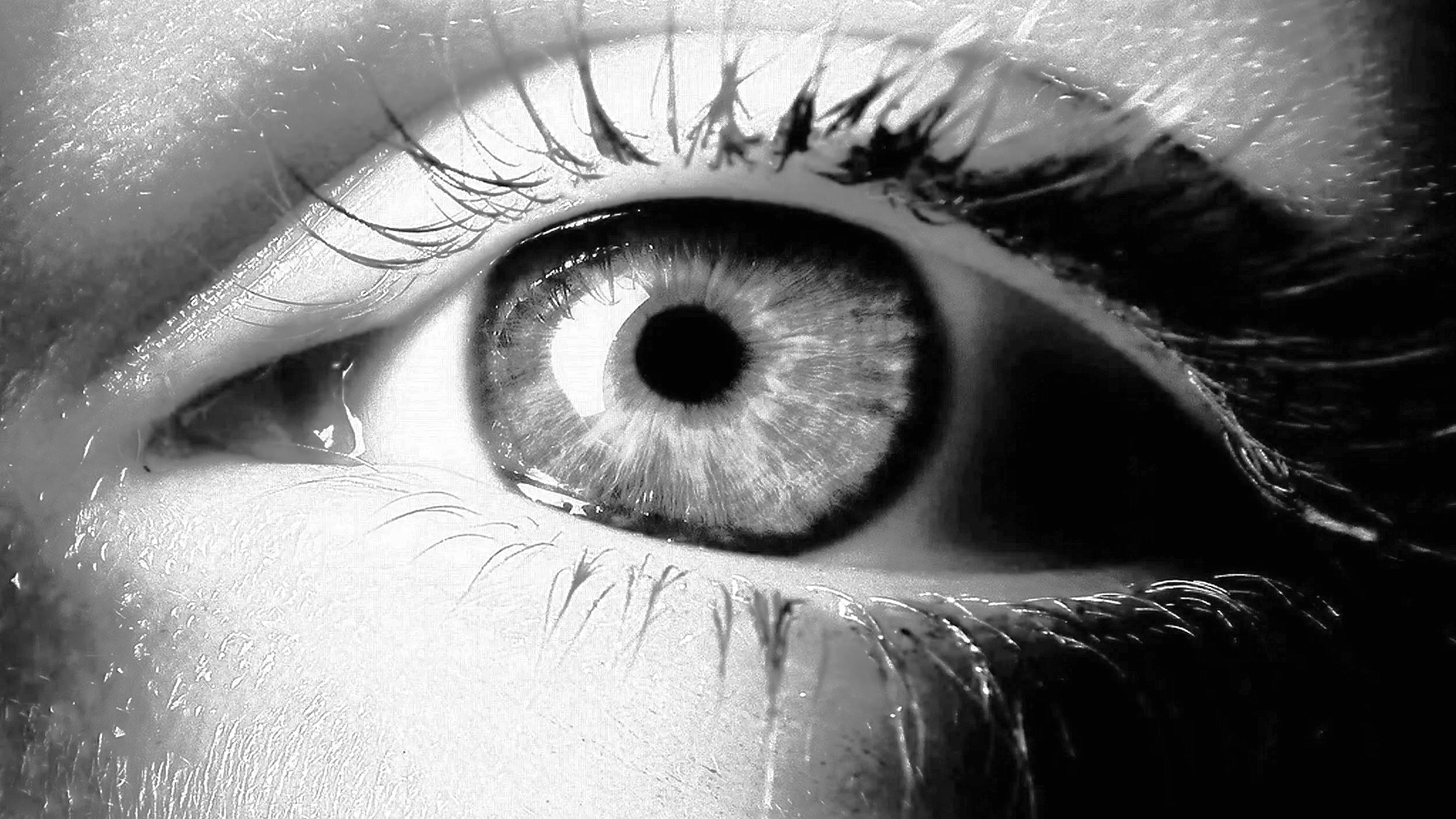EMDR Therapy Denver, CO
What Is EMDR Therapy?
Many of us come to therapy feeling stuck—emotionally overwhelmed by trauma, breakups, anxiety, or painful memories we can’t seem to shake. We’ve tried to move on, but the past keeps replaying in our minds, triggering shame, fear, or sadness. Whether it’s heartbreak, abuse, or childhood wounds, we’re seeking real healing—not just coping skills. Eye Movement Desensitization and Reprocessing (EMDR) is a cutting-edge modality created to help clients heal from distressing memories and traumatic experiences that remain trapped within the brain. Rather than requiring a detailed discussion of trauma with a counselor, eye movement desensitization and reprocessing therapy targets the brain’s natural healing abilities, allowing clients to process and release the emotional pain associated with past events. EMDR therapy offers a path to feeling grounded and whole again, no longer encumbered by the effects of trauma.
How Does EMDR Therapy Work?
EMDR is a powerful, brain-based therapy that helps you heal from painful experiences without having to relive every detail. During sessions, we employ gentle bilateral stimulation—like eye movements, tapping, or sounds—while you focus on a troubling memory chosen in advance. By engaging both hemispheres of the brain simultaneously, the memory is reprocessed, losing its emotional intensity.
You can think of EMDR as gaining access to your brain’s natural healing system. Over time, the emotional charge associated with the disturbing memory fades, freeing up space to function more effectively and feel calmer, clearer, and present in daily life.
Before getting underway with bilateral stimulation sessions, EMDR therapy includes a resourcing protocol. This ensures you are equipped with the necessary tools to cope with any anxiety, disassociation, or other symptoms that may arise in EMDR. You’ll learn grounding techniques to create a calm place within yourself you can return to if you ever begin to feel overwhelmed.
You’ll be in full control throughout EMDR, setting the pace you’re comfortable with and deciding what to share with your therapist. One of the key benefits of EMDR is that it often works faster than traditional therapy to eradicate any feelings of stuckness.
Although everyone is unique, most clients see results within eight sessions. In addition to in-person EMDR treatment, we also offer online sessions and reduced fees for sessions conducted with one of our highly trained clinicians with a master’s degree.
Who Can Benefit From EMDR Treatment?
Sometimes, clients who’ve been in traditional talk therapy for a while don’t achieve the healing they’d hoped for. That’s often because talking about past experiences stimulates the left side of the brain when, in fact, it’s the right side that holds trauma. Without engaging both hemispheres, talk therapy alone can be a limiting approach.
There are times when, even when we understand something logically, the emotional intensity still lingers. However, EMDR doesn’t rely on just talking through your pain—it works directly with how your brain stores and processes emotionally-charged memories. EMDR therapy helps process and release the emotional weight at its root, making it an effective treatment for PTSD symptoms—such as anxiety and depression—related to childhood and relational trauma, sexual and emotional abuse, assault, break-ups, and divorce.
Ongoing research supports positive clinical outcomes, showing EMDR therapy as a helpful treatment for disorders such as anxiety, depression, OCD, chronic pain, addictions, and other distressing life experiences. [1] Due to its efficacy, EMDR has been endorsed by many national and international organizations, including The American Psychiatric Association, the American Psychological Association, the International Society for Traumatic Stress Studies, the National Alliance on Mental Illness, the Substance Abuse and Mental Health Services Administration, the U.S. Dept. of Veterans Affairs/Dept. of Defense, and the World Health Organization. [2]
Why We Include EMDR Therapy As Part Of Our Practice
At Authentic Connections Therapy & Wellness, we have multiple therapists on staff with advanced training and experience in EMDR. After being introduced to our practice by one of our counselors, EMDR showed amazing results, prompting us to train additional practitioners. We also provide ongoing education and training to our team to ensure we stay current on best practices and protocols.
Through EMDR, you can feel calmer when recalling painful memories rather than feeling overwhelmed or triggered. You’ll learn to challenge and release negative beliefs such as “I’m not enough” or “It was my fault,” and replace them with more empowering truths. EMDR therapy helps reduce emotional reactivity, improve self-esteem, and create space for healthier relationships.
If you’ve been spinning in cycles of overthinking, emotional flooding, or deep insecurity, EMDR provides a way to feeldifferently—not just think differently. Bilateral stimulation helps untangle the nervous system from fight-or-flight responses, rewires limiting beliefs, and creates space for real clarity and peace.
It’s a deeply healing process that helps you feel like yourself again—lighter, grounded, and more resilient. We aim for you to walk away from therapy feeling lighter, more in control, and better equipped to confidently handle life.
What Topics Can EMDR Treat?
Distressing moments from the past
Relationship trauma
Sexual assault or Sexual trauma
Childhood abuse
Birth trauma
PTSD, Anxiety, Depression, OCD
Any event you identify as scary, overwhelming, or traumatic
What is Trauma?
Trauma is the emotional and psychological response to an event or series of events that are deeply distressing or disturbing. It can result from experiences that overwhelm an individual's ability to cope, leaving them feeling helpless, frightened, or disconnected. Trauma can stem from various sources, such as accidents, natural disasters, violence, abuse, loss, or any other situation that causes significant emotional pain.
Trauma is not defined by the event itself but by your personal experience and reaction to it. What may be traumatic for one person might not be for another, depending on factors like past experiences, support systems, and resilience.
Trauma can manifest in various ways, including flashbacks, nightmares, anxiety, depression, and physical symptoms like headaches or fatigue. It can affect every aspect of your life, from relationships and work to your overall sense of safety and well-being.
Relational trauma can be difficult to describe and pinpoint. Often people who have experienced relational trauma don't believe what they experienced was "bad enough" or would meet the criteria of the larger definition of trauma. However, research shows that loads, neglect, and abandonment from the people we love can be some of the most devastating trauma. A breakup or divorce, a betrayal such as cheating, or even parents who were not emotionally available or present growing up can leave painful traumatic scars. EMDR can help uncover and process some one these less concrete traumatic events in your life.
Is EMDR Therapy Right for You?
What happens in an EMDR session?
EMDR therapy consists of 8 phases. In the beginning phases you may practice grounding exercises and other tools that will help prepare you for exploring difficult or traumatic memories in a healthy way. In the middle phases you will discuss memories you would like to reprocess, and your therapist guides you through recalling distressing memories while using bilateral stimulation. This might be side-to-side eye movements, gentle tapping, hand buzzers, or audio tones. The goal isn’t to relive the trauma, but to help your brain reprocess the memory so it feels less distressing and more resolved. In the final stages your therapist will help solidify how your brain has reprocessed these memories so that this expreicne has a lasting impact. You’ll always move at a pace that feels comfortable for you, with grounding and resourcing techniques used throughout the process to ensure emotional stability.
Can EMDR treat Complex PTSD (C-PTSD)?
Yes, EMDR has been shown to be effective for Complex PTSD. EMDR’s structured approach helps the nervous system process long-term trauma and repeated emotional injuries. Most clients don’t just have one distressing memory and EMDR is effective in not only helping reprocess traumatic memories that are connected but exploring different memories that may be impacting the client.
How long does EMDR take?
The length of EMDR therapy varies from client to client. Some clients notice changes after 6–12 sessions, while others, especially those with multiple traumas, may benefit from longer-term work. Your therapist will collaborate with you and be intentional at setting goals and adjusting the pace to ensure the process feels steady and safe.
Is EMDR effective?
Yes, EMDR is one of the most research-supported trauma treatments available today. Studies by organizations such as the World Health Organization (WHO) and the American Psychological Association (APA) have found it effective for PTSD, anxiety, phobias, grief, and other distressing experiences. Many clients describe EMDR as helping them finally make last changes that traditional talk therapy couldn’t.
Can I do EMDR online?
EMDR can easily be done online and can be just as effective as in person sessions. The same activities that you would be doing in office can be adapted to an online space. This is often helpful in increasing access for clients who don’t live near and EMDR trained therapist or do not have the ability to regularly drive to an in-person session.
10 Experienced EMDR Therapists in Denver
-

Dr. Melanie Gomez, Psy.D. - Clinical Director
-

Jillian Snyder, LCSW
-

Meaghan Horsley, MA
-

Karina Ernst, MA
-

Danielle Cevis, MA
-

Caroline Lee, MA
-

Haley Schuveiller, MA
-

Erin Murray, MA
-

Liz Anthony, MA
-

Dr. Brittany Woolford - Licensed Psychologist and Founder
Find Out How EMDR Therapy Can Help You
If you've done the work but still feel like something’s missing, EMDR might be the missing link that helps everything finally click into place. To schedule a free 5-minute consultation to find out more about in-person or online EMDR therapy with us, please visit our contact page.
If you think EMDR therapy could be helpful for you, reach out to us! You can use our convenient online therapy scheduling.
We encourage you to get to know a little bit about our therapists, their specializations, and credentials. Get to know our therapists here.
Jump start your healing journey with quick and effective treatment.
We hope to hear from you soon!
[1] https://www.emdria.org/resource/the-efficacy-of-emdr-early-interventions/
[2] https://www.emdria.org/about-emdr-therapy/
EMDR Therapy Blog Posts
In-person and Remote Options for EMDR Therapy Services in Colorado
We have offices are conveniently located on the North Denver (Lower Highlands) , South Denver (Denver Tech Center), and Colorado Springs. Can’t make it into the office? No worries – we’ve got you covered with virtual therapy.
EMDR Therapy in Denver Tech Center, Greenwood Village Co
Our Denver Tech Center (DTC) office is located at 5350 S Roslyn St in Greenwood Village. It shares a parking lot with the Landmark near Comedy Works South, Hapa Sushi Grill and Sake, and JING Denver.
EMDR Therapy in Lower Highlands, Denver Co
Our Colorado Springs office is located at 2720 E Yampa St in Colorado Springs. It is 3 miles from downtown Colorado Springs and an easy drive from the highway.
EMDR Therapy in Colorado Springs, Co
Our Lower Highlands office is located at 2460 West 26th Avenue in Denver. It is right on i25, across the street from the downtown REI, and a few blocks from the Empower Stadium, The Downtown Aquarium, and Elitch Gardens










